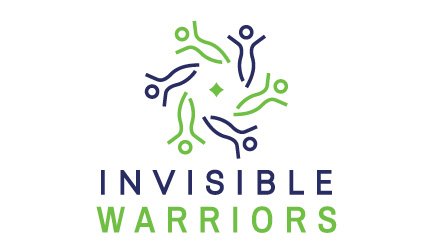Realistic Goals for Invisible Warriors
We all have those little voices chattering away in our heads telling us, “We’re not good enough,” or that we screwed up again. I know I have to hold conversations with myself daily to make sure they don’t get top placement and my positive thinking crowds out the negative. In other words, I try to have realistic goals for myself.
For those of us with chronic pain and depression, the negative Nelly voices are that much louder, thanks to the real voices of people in our lives who don’t believe our illnesses are real. Or that we’re exaggerating them.
At times, it can get so bad that we start to believe that these things are just in our heads and that we’re going crazy. I know I will be discussing something with my husband, he’ll question what I’m saying, and I have to stop and think, “Maybe he’s right,” although I know full well what I’m saying is correct. He doesn’t mean to be negative, but my poor little brain has to step back and take a minute to realize that I was on the right track all along and stay confident.
This blog post was inspired by the December 2021 Disabled Diva Blog by Cynthia Covert about setting realistic goals, particularly at the new year. Her points apply all year round.
If you’re one of the millions (133m American women) who have some form of chronic illness, autoimmune disorder, or invisible disability, try and pick at least one idea and make it a part of your life.
If you all have other ideas and strategies, please share them in the comments.
Realistic Mental Health Goals For Women with Invisible Illnesses and Disabilities
1. Forgive Yourself
Make it a goal to forgive yourself when you screw up. It’s going to happen. We’re all human, so we all make mistakes. Do what you can to make it right and allow yourself to move on.
2. Unfollow Negativity
If you follow people on social media who cause you unnecessary stress, anger, or sadness, it’s time to let them go. Reading negative posts or comments can affect your attitude. Remove people who are affecting your mental health from your feeds.
3. Stop Blaming Yourself
Not every flare is your fault. You didn’t cause your invisible illness or disability, and if you’re like most Invisible Warriors, you can’t really control it, either. While we can manage our symptoms, we can’t get rid of them. Let your illness take the blame for the flares and not you.
4. Don’t Compare Yourself
This is one thing that can seriously compromise your mental health, so do not compare your life to others. For one thing, they might be suffering from an invisible disability or illness, too, and you just don’t know it! We’re all on different journeys. Focus on what you CAN do, not what others are doing. And celebrate your successes!
5. Try New Things
Some medicines or doctors just don’t work. That’s when it’s time to try something new. Talk with your doctor about alternative options, including more holistic or natural treatments.
Having trouble getting around? Use a mobility aid. Be creative. Maybe find a cool walking stick instead of a boring cane. But choose one that helps you do more without the risk of falling or more pain.
Don’t give up just because what you’ve tried so far hasn’t helped or worked for you yet. Keep trying!
6. Determine to Complain Less
Have you ever stopped to consider how often you complain about your situation? One way to know it’s too much is if people’s eyes glaze over when you start talking about how things are going. Time to stop!
Reframing your thoughts by replacing negative, complaining ones with positive thoughts is a good way to tame the temptation to share all your difficulties with everyone you meet. I don’t mean that you go overboard on positivity, but focusing more on the positive will make you feel better, too. We can all always find at least one thing to be thankful for.
7. Decide to Exercise Daily
No matter what exercising looks like for you, there’s something for everyone. If you can’t run, take a walk. If you aren’t up to an aerobics class, try something at a slower pace like stretching and resistance exercises. If you are fortunate enough to have access to a pool, it’s one of the best ways to get low-impact resistance exercises and feels so good when you’re done. The point is, do something every day to move your body in some way. You’ll feel better.
8. Prioritize Your Health
Self-care is important for all Invisible Warriors. We need to not only see our doctors and follow the treatment plans they give us, but we also need to take time to care for our mental health. Pushing ourselves too hard physically or mentally is a good way to end up in an ER. Love yourself as much as you love the most important people in your life so you can be at your best as much of the time as possible. Spend your “spoons” wisely.
9. Focus on What You Can Do
It’s very easy to focus on what we can’t do as Invisible Warriors but those are things we can’t change and instead take us to dark places in our minds. Instead, we should focus on the things we CAN do. Thinking that way sometimes helps us identify alternative solutions to the things we can’t do.
Life isn’t over because of your invisible illness. It’s just different. What’s something new you can try now? Maybe you have more time resting so you can read books or take online courses to learn new things.
10. Plan Everything with your Invisible Illness in Mind
It will take time to learn if you are newly diagnosed and still figuring out your limitations, but once you have stepped over that obstacle, planning with your limitations in mind will help you live a full life in spite of them and not cause flares that slow you down.
Which realistic goals will you try to add to your life?
Invisible Warriors can help. We have a private community called the Invisible Warriors Club where we come together to discuss our challenges and share our successes and discoveries about living with chronic illness, autoimmune disorders, and invisible disabilities. We welcome you to join us! It’s a low $10/month donation to our nonprofit which helps us advocate more with the hospitality and healthcare industry as well as government agencies to help our Invisible Warriors get the care and accommodations they need not just to survive but thrive. Click the button below to join!
10 Realistic Goals for Invisible Warriors
Want to know more about Invisible Warriors? Sign up for our newsletter to receive regular updates. Contact us HERE. Or click the button below to schedule a meeting with Founder Nancy Becher!

